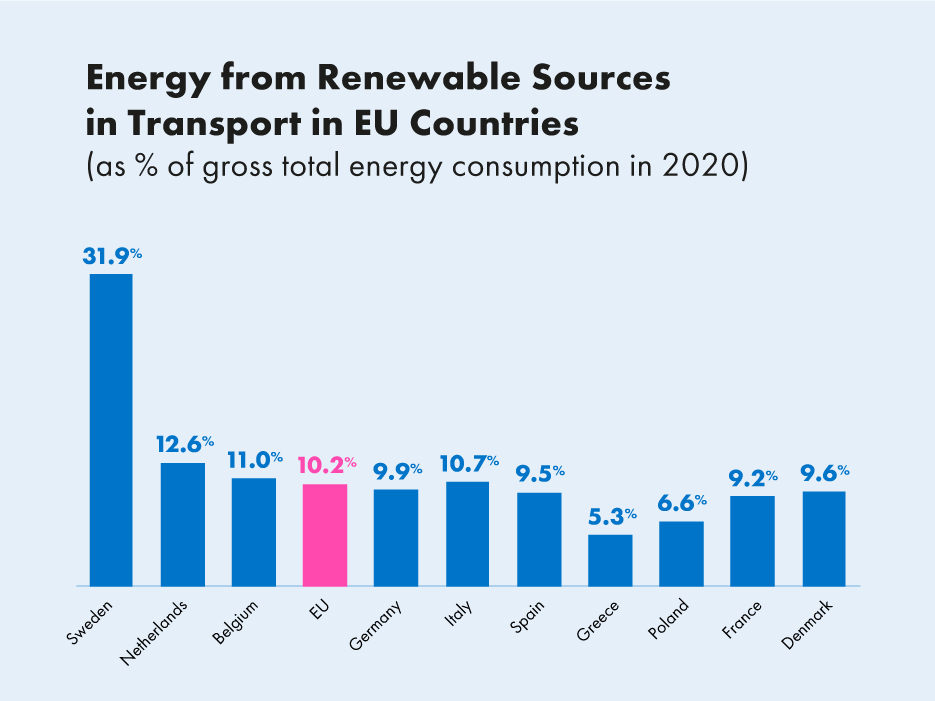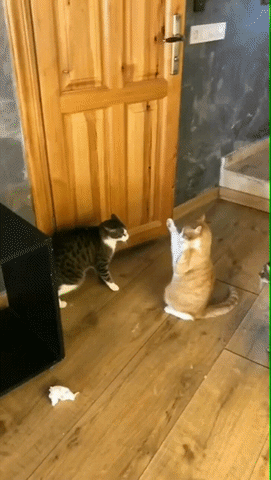Issue #72
Guten Morgen!
It’s hopefully a wonderful Saturday morning wherever you’re reading this edition of Krautshell from, and we’re excited to report some interesting developments to you. Take a look below to find out how Microsoft is skirting technicalities, what a lack of Russian gas could mean for Europe, and why Olaf Scholz is a strategic David Copperfield. Also, read the WOOM to hear about what Christian sees coming at us in the Year of the Tiger. Enjoy and happy weekend!


Anna Christian
FIRST, SOME SOLID INTEL:
The Roundabout Sovereign Cloud
This week, a new business partnership grabbed our attention. This might get a little confusing so just bear with us here. German software company SAP is partnering with Arvato (German innovative solutions company for supply chain management, financial services, etc.) to create a new German company whose purpose will be to build a Microsoft-software-based cloud infrastructure for German public administration. Now, why is this such a mouthful? And why doesn’t Microsoft just offer its already existing cloud computing service, Azure, to German administration and call it a day? Let me explain.
Back in 2020, the ECJ struck down what sounded like the Justice League’s go-to-weapon: the “Privacy Shield.” This tool was an agreement between the EU and US to transfer data between the two continents while keeping data secure in conformity with the EU’s General Data Protection Regulation (GDPR). The ruling essentially said: the Privacy Shield is not protecting European data in the US as it should. Whether this is really the case is not for us to decide, but we can tell you the effects: lots uncertainty in Europe about using American software solutions, particularly those which store personal data. Now, it just so happens that cloud servers store huge amounts of data, and the world’s three largest cloud services providers are American. Circling back to the question: why this complicated co-venture? German authorities have been reluctant to use American cloud offerings, which has made them technologically backwards. Now, they need to modernize, and are realizing that European offerings just lack in quality. Therefore, Microsoft is offering its software (and nothing more) to these two German companies so they can set up a server infrastructure completely in Europe. So essentially, without US involvement. Whether this venture is successful will crystalize over the next year or so, and we’ll be following it incredibly closely.
If Russia Turns Off the Gas
In these times of the Ukrainian crisis and diplomatic confrontation between the EU and Russia, we ask ourselves: what happens if Putin decides to turn off our gas? About 60% of the EU’s energy needs are met with imports, with Russia being the most important supplier of crude oil and gas. So, what are the odds that Russia turns down the gas supply for Europe for leverage in this crisis? And what could we do against it?
First, it is highly unlikely that Russia turns down all gas at once. Just for technical reasons, this is dangerous. But they could slowly turn down the gas flows week by week. If they do so, the EU probably has reserves until April, then it gets critical. What could lead Russia to decrease gas flows? One sanction mechanism, the cancellation of the payment scheme SWIFT, could lead companies like Gazprom to stop exporting gas because of payment insecurities. And should the EU decide to shut down North Stream 2 for the time being as leverage as well, Russia might decide to play along with the other pipelines.
Ultimately, a full stop of Russian gas exports is highly unlikely, but the consequences have also never been simulated in the EU. That’s a danger. Even though LNG from the US or gas from Qatar for instance might help, the EU won’t be able to offset a complete shutdown from Russia with any of these alternatives. That being said, let’s hope this won’t happen.
Interior Ministry on the Telegram-War Path
Over the past few weeks, the messaging and social media app Telegram has made German news quite a number of times and, let’s be honest, rarely do social media platforms get on the news for the positive impact they’re having on society. Telegram is a messaging app that is mainly used for one-on-one messaging, but it also offers the possibility to create groups with up to 200,000 members and social media “channels” with unlimited followers. In fact, we use it in our company for internal communication. Throughout the Coronavirus pandemic though, the app has also become a meeting place for not-so-nice things. Specifically, to exchange ideas between many prominent Corona deniers, conspiracy theorists, and extremists. Some of these groups have now moved from the virtual world to real life. To give you an idea of what we’re dealing with: over the past two months, a series of police raids have been carried out over death threats towards not one but two German state prime ministers (Manuela Schwesig, Mecklenburg-Western Pomerania and Michael Kretschmer, Saxony.)
Many pieces of content in these various Telegram groups pose legal problems under Germany’s Network Enforcement Act (NetzDG), which aims to enforce the illegality of symbols and speech in the virtual world. (Think swastikas and inciting violence) Getting the company to cooperate and remove hateful content has proved a tad difficult for the German government, as Telegram was founded with “libertarian values” and has a “proud tradition of ignoring government requests.” Then, Nancy Faeser (SPD) took the reins of Germany’s Federal Interior Ministry. In an interview, she threatened to take measures to shut down the app completely if they did not cooperate. Well, it seemed to work, as Germany’s Interior Ministry engaged in “constructive discussions” with Telegram executives this week, which Faeser wants to continue. We’ll keep you updated.
TAKE A BREAK, GIVE YOUR EYES A REST.

Source: Eurostat
THE HOUSE’S VIEW: by Jonny
Olaf Scholz – The Invisible Man
Some of you might wonder: where the heck is Germany’s Chancellor? Some of you might even wonder: who the hell was Germany’s Chancellor again? His name is Olaf Scholz, a Social Democrat from the SPD, and after becoming Chancellor he performed the impressive trick of becoming invisible. At least his critics from the Merkel party CDU would say so. And, if you want to trust political commentators in the media, our allies across the Atlantic are asking a similar question: what’s going on with Olaf Scholz and can we still rely on Germany for issues like the Ukrainian crisis? As a German and a fellow party member of the Chancellor (mentioning that for transparency reasons), I will try to explain Olaf Scholz and his actions (or non-actions) for you.
The Stoic or “Teflon-Scholz”
Scholz predecessor Angela Merkel was known for being unpretentious, rational, calm. Olaf Scholz is all of that as well, but he is certainly taking it to the next level. German media once gave him the name “Teflon-Scholz” as he was willing to cope with every crisis around him, standing his ground, saying nothing, letting every bullet fired at him just bounce off. Scholz is probably best described as a stoic. He isn’t (very) interested in what media writes about him, he has an agenda, he has advisors who know how he thinks (the most powerful of them, Wolfgang Schmidt, is now head of the Chancellery), and he follows his plan.
Being stoic can be something very good. The world needs at least some politicians that don’t change their mind over every negative newspaper article that it’s written about them or their political agenda. But being stoic can become problematic in the moment where the public perceives you as phlegmatic, enigmatically passive, somehow not “present.” And Scholz getting to that point if he hasn’t already got there yet.
Necessary Evil or Bad Strategy?
One part of Scholz’ current passiveness can certainly be attributed to the “implicit” parts of the new coalition treaty. Chancellor-candidate Baerbock (Greens) became Foreign Minister (we had a portrait about her two episodes ago) and made it clear that she doesn’t see herself as a puppet guided from the Chancellery. So, Scholz partly holds back to let her do her thing. They coordinate but she got the public attention in foreign politics, flew to Kiev and Moscow, while Scholz sat around and waited. Is this a mistake? For a long time, people felt they were sick of foreign politics being the playground of men with a need for admiration. Now that a man leaves the field for a woman, complaints start again. Probably, the truth is in between.
But don’t you worry – I’m not making this a gender debate. It’s not, or at least not mainly. It’s also a question of strategy. Germany’s strategy so far, also under Merkel (because it has historic reasons), has been to keep all parties at the diplomatic table. Still, you could very well argue that Putin’s main objective is not war in the Ukraine but being taken seriously on the geopolitical stage (I’m only saying two words: “regional power”). If you are in line with this argumentation, you would probably threaten Putin with war if he doesn’t stop provoking. Because then you show him: “We are taking you seriously and now everybody calm the f*** down.” This has never been the style of German foreign politics, but maybe it’s necessary now. Maybe Scholz’ “wait and see and talk” is the wrong approach.
Can You Still Rely on Germany?
In case political commentators are right that this is the question you are asking yourself, I assume the answer is: Yes. Germany will continue to stay a reliable partner, Olaf Scholz will become a solid Chancellor (most likely). First, he badly needs to visit Washington, he needs photographs in the Oval Office together with President Biden. In Germany, this will help him. Furthermore, he needs a bilateral with Putin. This will help him in the EU and in the eyes of the US. The alternative is losing the leading role in the EU in this crisis. Even though France and Germany are coordinating, Macron took over this topic as every success here could help him secure his re-election in summer.
The House’s View
Olaf Scholz biggest risk in German politics is when public opinion about him changes from “the stoic” to “the invisible man.” His biggest risk in foreign politics is when everyone thinks he is too cautious to act. It seems like he waited long enough and plans on becoming active, but you are mistaking when you expect big steps forward. Scholz will act as he always has: long talks, diplomacy, everything combined with a nearly invisible sense of how to utilize power. Because of that, Scholz is underestimated but also in danger of becoming a minor part among the Western allies if he doesn’t step up. As one German newspaper put it: “Scholz was elected two months ago, but he hasn’t become Chancellor yet”. But he will.
LONG STORY SHORT:
- Dosvedanya and Aufwiedersehen German TV: Following a ban in Germany of the Russian state-owned TV channel RT DE, Moscow has returned the favor by pulling the plug on “Deutsche Welle” in Russia. Not only that, but the Russian Foreign Ministry also ordered the closure of the German foreign broadcaster’s correspondent office in Moscow and the withdrawal of journalists’ accreditations. FYI: Deutsche Welle is the German state-run international broadcaster – basically “the Germany Channel” operating in over 30 languages.
- New Green Head Honchos: The Green Party in Germany has elected two new leaders this past week: Ricarda Lang and Omid Nouripour. Lang is 28 years old, an outspoken feminist and part of the party’s left wing. Nouripour is 46, an expert on foreign policy, and belongs to the party’s more moderate clientele. Given the last leaders led the party to be part of the new government, there are some big shoes to fill for these two.
- Oops, I just changed my country’s labor laws: On Friday, Spain’s government passed some sweeping labor reforms, giving more power to labor unions and lowering the number of temporary work contracts in the country. The unfortunate part: the vote passed by a margin of one, and the Conservative People’s Party claims a vote cast as “no” appeared on screen as a “yes.” This alleged computer error definitely has some far-reaching effects.
WHAT’S ON OUR MINDS
Eye of the Tiger
This week was Chinese New Year, ushering in the year of the tiger! Tigers stand for bravery, competitiveness, and unpredictability. Tigers that you might know are Megan Fox, Leo di Caprio and myself. Accordingly, predictions state that 2022 will bring extremes and radical changes for the globe. And, given extreme climate and geopolitical crises stemming from earlier years, meeting people would be an extreme change for the sleepy tigers in all of us, I guess.

The happenings of the past week seemed predictable, though: the (soon) post-pandemic economy is now inflationary with a Eurozone all-time high of 5.1%. The CDU gained 5% in the polls after CDU-Chair Friedrich Merz finally assumed office. Russia withdrew all the press credentials of all “Deutsche Welle” staff and is shutting the organization’s studio in Moscow after German authorities confirmed that “Russia Today” would have no valid license to broadcast in Germany. Especially on this last point, it’s predictable that an eye for an eye still counts in the German-Russian relationship, which actually goes well with a cat’s year.

While the judeo-christian “eye for an eye” historically meant the introduction of modern justice – the punishment must not be greater than the offence, as was frequently given in ancient times – it would be great to grow beyond that in today’s geopolitics. However, applying an even more modern biblical “turning the other cheek”-policy would neither be Putinesque nor Tigerish, would it? But then again, we do know from observational science that the cat species act strangely. So, let’s wish ourselves the best for the wave of political and economic changes, because if there is one thing we can predict from cats’ behavior: We can never tell what the hell they have in their minds at any given moment.


